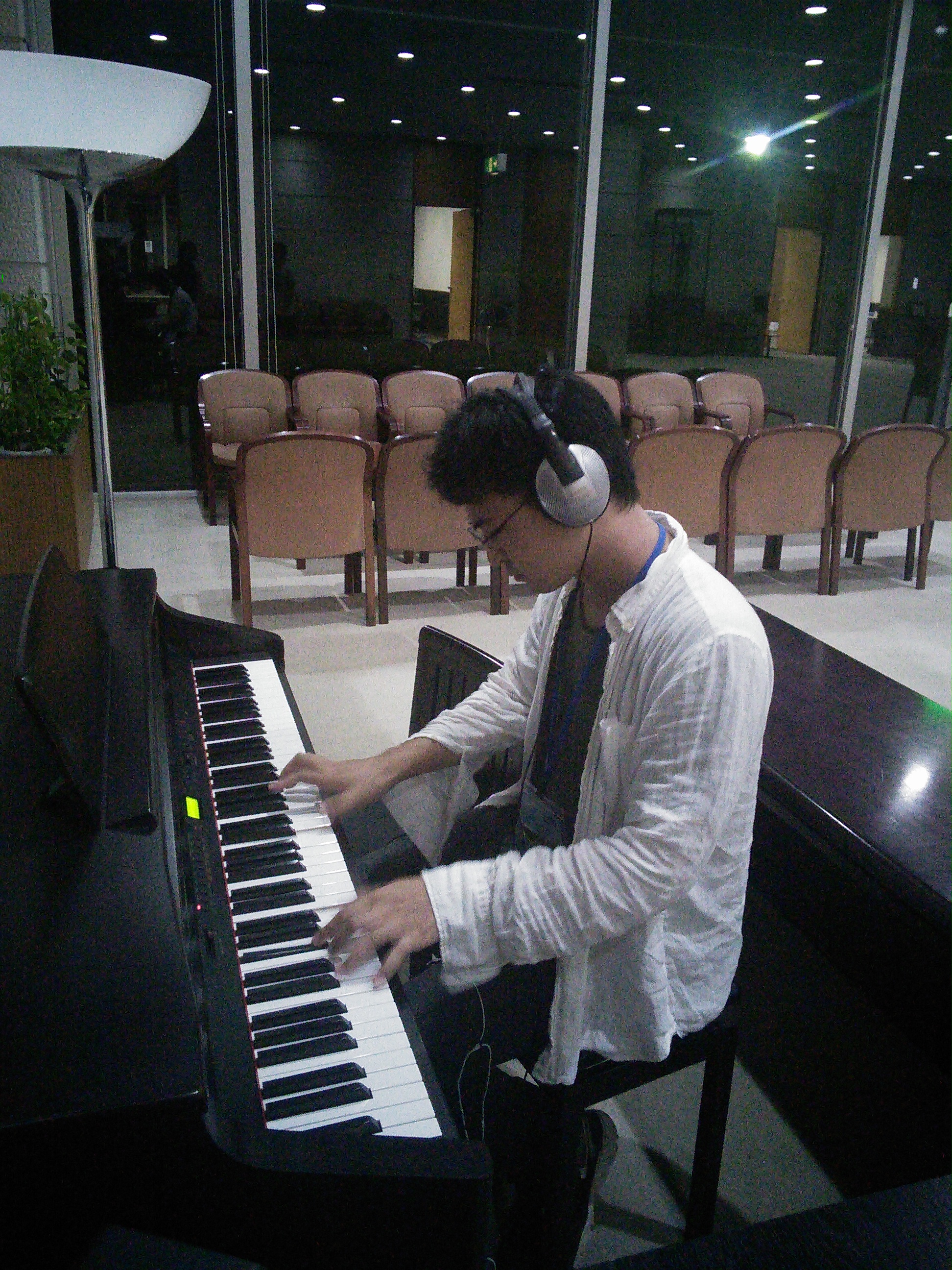10月1日
September was a terribly busy month for me. I had to consider a lot of matters, such as disposing all the furniture in my ex-home and in my IPMU room, saving all the important documents as PDF files to reduce the weight of my luggage/parcels, and finally packing all of them into five boxes, two suitcases, 2+3 TB HDDs, and a 500 GB VPS server (in Japan).
September 22nd I asked Keisuke to drive me with my stuffs in my IPMU room, 23rd I tried to dispose all the stuffs in the room. 23rd, 24th, 25th and 26th are the garbage-collection days in my town, and I had to pick up all the stuff which should be disposed for each days. 23rd and 26th were for flammables, 24th for plastics, and importantly 25th was non-flammables, i.e., anything.
Those days were in daily basis, and hereafter hour-basis. 26th 9am my furniture was picked up by specialized staffs. Thus I had to move to a hotel in 千駄木, the town I had lived for more than seven years before I moved to 柏, but before that I had to prepare the parcels that were going to be sent to my hometown and my new town in 28th morning. I on the day submitted a document of the moving to the city office. 27th was Saturday, and it was consumed to sleeping, as I could sleep only two hours in 26th morning, and having my hair cut as preparation to the hard-water in Israel. Ah I also went to 本号, the Jiro-type ラーメン restaurant which three times per week I went to when I was in 千駄木. Jiro (二郎) is a special category of ラーメン and is my best-favorite junk food. Please note that 本号 is one of the best Jiro-type restaurant in Tokyo. Then 28th, Sunday, 10am a postal worker came to pick up the parcels; then 11am a student, to whom I would give my one-year-old blue bicycle, came to pick up the bike. I told him how to ride on and maintain the bicycle. Then I had to go to IPMU to arrange my data in HDDs. Finally I went to 東中野 to eat シュニ郎, Jiro-ラーメン hand-made by Shunirr; it actually turned out to be a small farewell party of me.
29th I did all the stuff on IPMU. 11am I met a relative working near IPMU to say good-bye, and then cleaned up my room in IPMU, returned the keys back, attended the last group-lunch, and did saying see-you-again to all the group members in IPMU. I had to go back to my home by 3pm, where I signed the cancellation document of my room and returned the keys. Then I packed everything in my huge suitcase, and went back to 千駄木, the hotel. I walked there around, and looked back the days in the town with nostalgia.
30th was the last day in Japan. Of course, I had to prepare many documents such as a final report of my fellowship, and to dissolve all the contracts such as newspapers, electricity, and cell phones. The day begins with cancellation of the cell phones, and then went to 池袋 to buy electric adapters etc. Then I came back to 千駄木 to go to 東京大学 to get money back from 東京大学 CO-OP, to say good-bye to people such as my supervisors, and, more importantly, to have the last 本号 (normal-size with one extra pork). Also I went to Espresso Factory, my favorite coffee shop, to say good-bye to the master. I had iced caffe-latte. Then I came to 成田 airport. Now I am writing this in the plane.
In this two weeks I met most of the people important for me living around 東京. "The Car" including Shunirr on 14th, 21st and 28th; a relative on 29th; a "friend" on 24th and 28th; a "tender" on 25th and 29th. I had really good time.
My flight, 22:00 成田 to Istanbul, was the last flight on the day. It really seemed stupid to me that they were trying to establish a hub airport with this seven-eleven, i.e. 7am-11pm, airport. Once one experienced a 24h airport such as Ataturk airport in Istanbul, they will be annoyed that 成田 airport, the Japan's principle international airport, is a seven-eleven.
Anyway, I could take a shower, have a 海鮮丼 (a rice bowl with various 刺身), buy water and tea and an ice cream, and do some Internet. I was on board, and now in the high sky. On the take-off the display in front of me showed the catch phrase of Turkish airline, "WIDEN YOUR WORLD". The windows were just in black, perhaps because of clouds.
I arrived Istanbul Ataturk airport, and stayed for one hour. Then the flight to תל אביב. When the airplane reached a runway, the sun touched the edge of mountains. The sun rose, the plane ascending to the sky.
Finally I arrived תל אביב בן-גוריון airport. Passport check, luggage pick-up, and bought a bottle of Coca-Cola (also I received a card with green heart from young guys). I was going to buy a SIM card, but luckily the one I used in my last visit seems still available;actually it is out of date; I had to buy or recharge... I am now in a train to חיפה חוף הכרמל.
Arrived. I am taking shower to go to the department.
Dear Gamayauber,
I am now, as I wrote above, in ישרהל. I do not know whether I shall thank you for, e.g., your advice, but at least I am conscious that I am glad to have read your blog articles. Your articles are "有り難い" ones; where I tried to find an English translation of this word but I could only find the word "divine", which should be inappropriate. Anyway I did an exodus, and will hopefully be free from everything in Japan.
As you try to find origin of the Japanese's mentality, which you said greatly different from Westerners', I also have considered characters of, or what is special in, Japanese language in comparison with Hindu-European ones. This stay, in a country with Afro-Asian language, will help the thought of mine a lot. I hope to discuss the topic with you someday.
You seems bored with some nation; your tweets are sometimes polluted with rage. Please keep your brain not to be infected.
Best regards.


Comments
Rue Favart 2014/10/05(Sun) 00:44:50
It was surprising to know that you are away from the country, but I am happy to know that your life has started smoothly.
Good luck, please enjoy.
By the way, I think your signature is little bit unreadable!!
みしょ 2014/10/05(Sun) 01:12:09
Thank you for a comment! I am really glad to have your message again. היפה is a beautiful city, and interesting for residents' Jewish custom.
I hope you be with yourself, and wish to see you someday.
Also note that my signature was *little bit* unreadable. It will be completely unreadable, like those of Westerners.